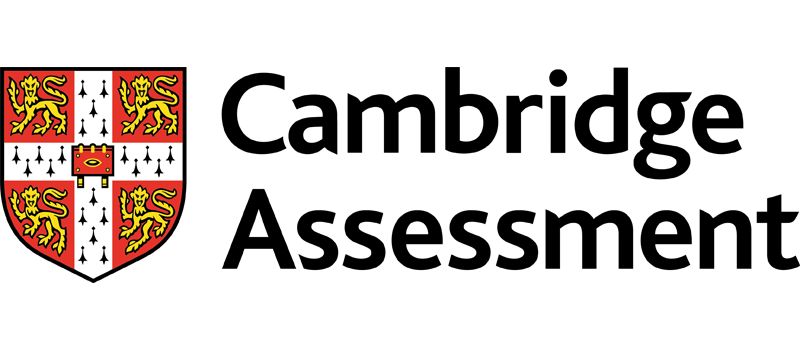
Implementation of Business Plans and Follow-up on Performance Evaluation
Course ID: 2511172701390EGI
Course Dates : 17/11/25 Course Duration : 5 Studying Day/s Course Location: Barcelona, Spain
Language: Bilingual
Course Category: Professional and CPD Training Programs
Course Subcategories: Human Resources and Talent Development
Course Certified By: * Projacs Academy
* Professional Training and CPD Programs
Certification Will Be Issued From :
KSA
Course Fees: £4,842.78
Vat Not Included in the price. VAT may vary depending on the country where the course or workshop is held.
Click to Pay
Date has passed please contact us Sales@e-s-hub.com
Course Information
Introduction
The ability to effectively implement business plans and conduct performance evaluations is a cornerstone of organizational success. In an era where strategic agility and accountability are paramount, organizations require leaders who can translate vision into actionable steps while ensuring alignment with measurable outcomes. This course addresses the critical intersection of planning and performance management, equipping participants with the tools to bridge the gap between strategy formulation and execution. By mastering these competencies, professionals can enhance operational efficiency, foster innovation, and drive sustainable growth.
Many organizations face challenges in translating well-crafted business plans into tangible results. A common pitfall is the lack of systematic follow-up mechanisms to monitor progress and address deviations. According to the Balanced Scorecard framework, successful strategy implementation requires clear communication, robust performance metrics, and continuous feedback loops. Yet, studies show that nearly 70% of strategic initiatives fail due to poor execution. This course seeks to address this gap by providing participants with practical methodologies for aligning teams, setting realistic goals, and evaluating performance against predefined benchmarks.
Consider the case of a multinational corporation that introduced a new market-entry strategy but failed to achieve its targets. Upon investigation, it was revealed that the root cause was not the plan itself but the absence of a structured follow-up process. By implementing regular check-ins, revisiting key performance indicators (KPIs), and fostering a culture of accountability, the organization was able to recalibrate its approach and achieve significant improvements. Such real-world examples underscore the importance of integrating evaluation into the implementation process—a core focus of this course.
The benefits of mastering this subject extend beyond individual professional development. For organizations, effective implementation and performance evaluation lead to increased profitability, improved employee engagement, and enhanced stakeholder trust. For individuals, these skills position them as indispensable assets within their teams, capable of driving projects to completion and delivering quantifiable results. Moreover, proficiency in this area aligns with emerging trends such as data-driven decision-making and adaptive leadership, which are increasingly valued in today’s dynamic business environment.
Theoretical frameworks like Kotter’s 8-Step Change Model and Kaplan and Norton’s Strategy Maps provide valuable insights into the complexities of implementation and evaluation. These models emphasize the importance of leadership, communication, and adaptability—themes that will be explored in depth throughout the course. Participants will also gain exposure to contemporary practices such as OKRs (Objectives and Key Results) and Lean Management, which have revolutionized how organizations approach goal-setting and performance tracking.
Ultimately, this course is designed to empower participants to become catalysts for change within their organizations. Whether you are a seasoned executive seeking to refine your strategic toolkit or an emerging leader eager to make your mark, the knowledge and skills gained from this program will enable you to navigate the intricacies of business planning and performance management with confidence and precision.
Objectives
By attending this course, participants will be able to:
Analyze the components of a comprehensive business plan and identify potential barriers to implementation.
Design tailored performance evaluation systems aligned with organizational objectives and industry standards.
Apply best practices in project management to ensure timely and efficient execution of strategic initiatives.
Evaluate the effectiveness of implemented strategies using qualitative and quantitative metrics.
Implement corrective actions based on performance feedback to enhance future outcomes.
Foster a culture of accountability and continuous improvement within teams and departments.
Synthesize insights from real-world case studies to develop innovative solutions for complex implementation challenges.
Who Should Attend?
This course is ideal for:
Mid-level managers and executives responsible for overseeing strategic initiatives.
Project managers tasked with coordinating cross-functional teams and delivering results.
Consultants advising organizations on strategy formulation and execution.
Entrepreneurs seeking to scale their businesses through disciplined planning and monitoring.
HR professionals involved in designing performance management systems.
These groups will find the course valuable as it equips them with the skills to bridge the gap between strategy and execution, addressing a common pain point in their roles. The course is suitable for intermediate learners who already possess foundational knowledge of business operations and are looking to deepen their expertise in implementation and evaluation.
Training Method
• Pre-assessment
• Live group instruction
• Use of real-world examples, case studies and exercises
• Interactive participation and discussion
• Power point presentation, LCD and flip chart
• Group activities and tests
• Each participant receives a 7” Tablet containing a copy of the presentation, slides and handouts
• Post-assessment
Program Support
This program is supported by:
* Interactive discussions
* Role-play
* Case studies and highlight the techniques available to the participants.
Daily Agenda
The course agenda will be as follows:
• Technical Session 08.30-10.00 am
• Coffee Break 10.00-10.15 am
• Technical Session 10.15-12.15 noon
• Coffee Break 12.15-12.45 pm
• Technical Session 12.45-02.30 pm
• Course Ends 02.30 pm
Course Outlines
Foundations of Business Planning and Implementation
Understanding the anatomy of a business plan: Vision, mission, and objectives.
Identifying stakeholders and securing buy-in for strategic initiatives.
Mapping resources and capabilities to strategic priorities.
Common pitfalls in implementation and strategies to avoid them.
Day 2:
Performance Evaluation Frameworks
Introduction to KPIs, OKRs, and Balanced Scorecards.
Setting SMART goals and aligning them with organizational strategy.
Tools and techniques for collecting and analyzing performance data.
Evaluating team and individual contributions to overall objectives.
Day 3:
Monitoring Progress and Managing Risks
Establishing governance structures for ongoing oversight.
Techniques for conducting periodic reviews and status updates.
Risk identification, assessment, and mitigation strategies.
Leveraging technology for real-time performance tracking.
Day 4:
Corrective Actions and Continuous Improvement
Diagnosing underperformance and identifying root causes.
Developing action plans to address gaps and challenges.
Encouraging innovation and learning from failures.
Building resilience and adaptability into implementation processes.
Day 5:
Case Studies and Practical Applications
Analyzing successful implementations from leading organizations.
Group exercises: Developing a mock business plan and evaluation system.
Role-playing scenarios to practice feedback delivery and conflict resolution.
Final reflections: Creating a personal action plan for applying course learnings.



















































